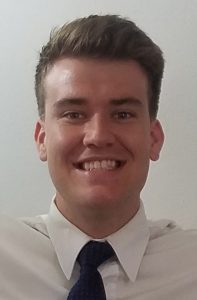ASUU Board Directors: Translating the Presidency’s Goals and Prioritizing Students
April 20, 2022
ASUU is the student government representing all students at the University of Utah. Each branch has its own functions and responsibilities that directly serve the needs and interests of students at the U.
The executive branch consists of the student body presidency and the executive cabinet, which contains 11 boards each with their own director. Executive cabinet boards range from finance to sustainability. Directors in ASUU function in their own capacity, handling the daily operations and oversight of their respective boards.
Directors may have specific goals and plans but they also are expected to mirror the policy preferences and goals of the ASUU presidency. Oversight from the presidency comes mainly from Sanila Math, the ASUU chief of staff, who ensures that goals and policies of the presidency are being worked towards within each board.
“It’s to make sure that programs we’re doing align with goals that the presidency has set, and then also goals that directors set for themselves in terms of what they want to get out of the position and what they see themselves contributing to the student body for the academic year,” Math said.
According to Math, one of this year’s goals coming from the presidency was to advocate for safety, accountability and transparency.
Taylor VanderToolen, the director of finance within ASUU as well as ASUU president-elect, gave some insight into the work he has been doing over the past year.
“My whole goal is just to make sure that, because these funds are coming from students and we’re kind of taking them almost in the form of taxes, I guess you could say, that they are for sure going back to the students in some way or another whether that be through an event or an activity or funding for clubs or those sorts of things,” VanderToolen said.
Because COVID-19 put a stop to some student organizations and funding was limited, VanderToolen wanted to make sure most, if not all, the money budgeted for ASUU was spent.
VanderToolen wanted all the clubs and students on campus to know how much money they had access to and how to access it.
“And so, my entire goal this year was to help the assembly to reach out to clubs and student organizations and inform them of how much money they were able to receive,” VanderToolen said.
Directors are expected to dedicate a significant amount of time to their duties — they work anywhere from 10-20 hours a week in the position.
Sydney Nielson, the director of marketing for ASUU, oversees both digital and physical marketing, and also acts as a liaison between each board to market their current goals and plans.
“I think that it makes me feel really good and productive when I can see that students are actively engaging with ASUU like with our posts and commenting actively on things we’re doing,” Nielson said.
For Nielson, seeing proof of engagement is what feels the most successful.
VanderToolen was proud that a majority of the budget was going to be used for students.
“It just feels good to know that students’ funds aren’t just going to be sitting in [an] account, but that they’re actually going to be returning to the students and creating activities or creating events or that sort of thing,” VanderToolen said.
ASUU directors can get to their position in different ways. VanderToolen, for example, started as an assembly representative. He thought it was important to understand how the assembly and legislative body worked.
“I saw how impactful ASUU can be on students and student organizations, and advocating and representing students to the university and so then I decided, you know, I’m going to apply to be finance director,” VanderToolen said.
Math took a different approach by applying directly to be an associate board director.
“It took me a while to understand that to have a successful academic journey that’s not just like grades and stuff, you have to be involved on campus,” Math said. “I actually got involved in ASUU my sophomore year, because I was really interested in advocating for equity and diversity initiatives. So, I served as an associate director for that diversity board.”
Nielson encouraged people to apply to be on the boards because there is still a lot of room for improvement at the U.
“I think that the more people that participate in it, the better, and the more voices we get to hear and different opinions on things,” Nielson said. “So just be a determined kind of person and make sure you know what you’re getting yourself into. But I think almost anyone could be successful if they’re there for the right reasons.”








